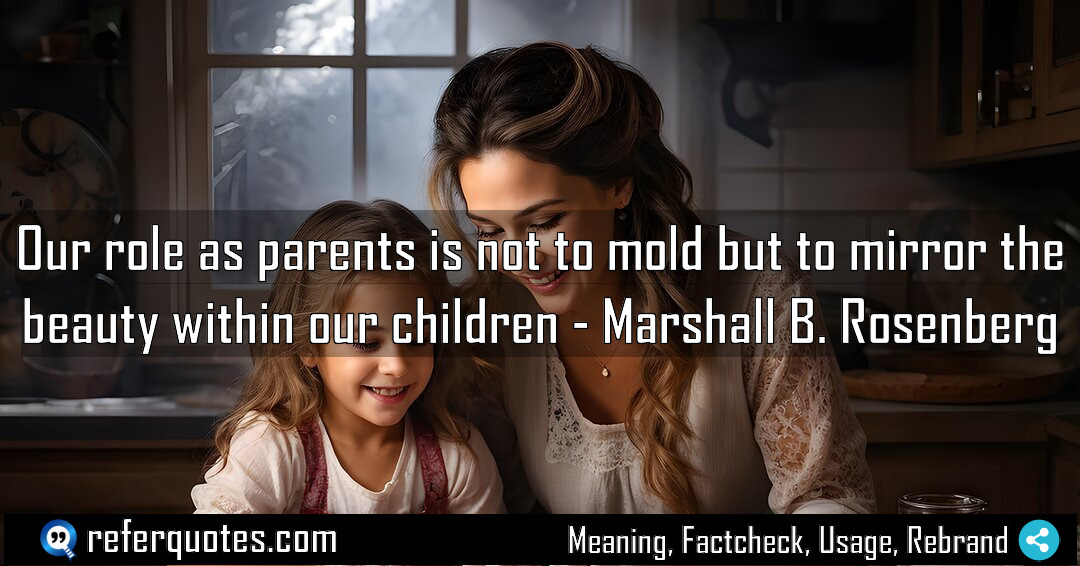Our role as parents is not to mold but to mirror… it’s a game-changing shift from trying to fix our kids to truly seeing them. This philosophy, from Marshall Rosenberg, flips traditional parenting on its head and focuses on connection over correction. It’s about reflecting the inherent value they already possess, not shaping them into who we think they should be.
Share Image Quote:Table of Contents
Meaning
At its core, this quote means our job isn’t to sculpt our children into a predetermined image, but to act as a mirror that shows them their own innate worth, beauty, and capabilities.
Explanation
Let me break this down because it sounds simple, but it’s profound. The “mold” part is our default mode—we have this picture in our heads of the successful, well-adjusted adult, right? And we try to chisel and correct our kids to fit that picture. But “mirroring”? That’s the magic. That’s about active listening, about naming their strengths when they can’t see them, about validating their feelings without rushing to solve the problem. It’s saying, “I see you. And what I see is beautiful.” It builds a core of self-worth that no amount of molding ever could.
Quote Summary
| Context | Attributes |
|---|---|
| Original Language | English (3668) |
| Category | Skill (416) |
| Topics | guidance (10), parenting (19), reflection (15) |
| Literary Style | poetic (635), reflective (255) |
| Emotion / Mood | gentle (183), inspiring (392) |
| Overall Quote Score | 86 (262) |
Origin & Factcheck
This is straight from Marshall B. Rosenberg’s 2005 book, Raising Children Compassionately: Parenting the Nonviolent Communication Way. You sometimes see the sentiment floating around unattributed, but the specific phrasing is Rosenberg’s, rooted in his Nonviolent Communication (NVC) framework developed in the United States.
Attribution Summary
| Context | Attributes |
|---|---|
| Author | Marshall B. Rosenberg (190) |
| Source Type | Book (4032) |
| Source/Book Name | Raising Children Compassionately: Parenting the Nonviolent Communication Way (135) |
| Origin Timeperiod | Contemporary (1615) |
| Original Language | English (3668) |
| Authenticity | Verified (4032) |
Where is this quotation located?
| Quotation | Our role as parents is not to mold but to mirror the beauty within our children |
| Book Details | Publication Year/Date: 2004; ISBN/Unique Identifier: 9781892005140; Last edition: PuddleDancer Press, 1st Edition, 48 pages. |
| Where is it? | Chapter: The Role of Parents, Approximate page from 2004 edition |
